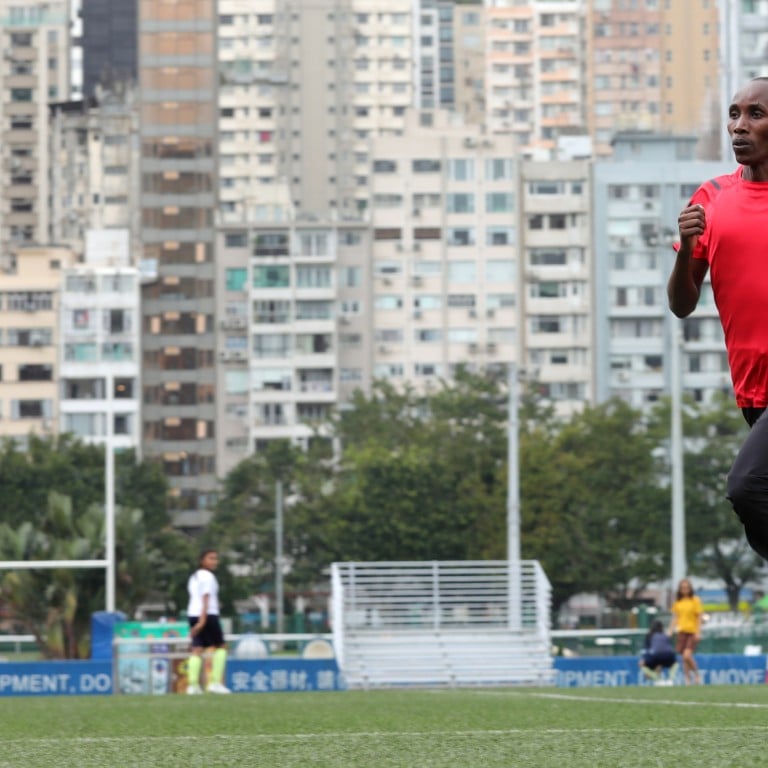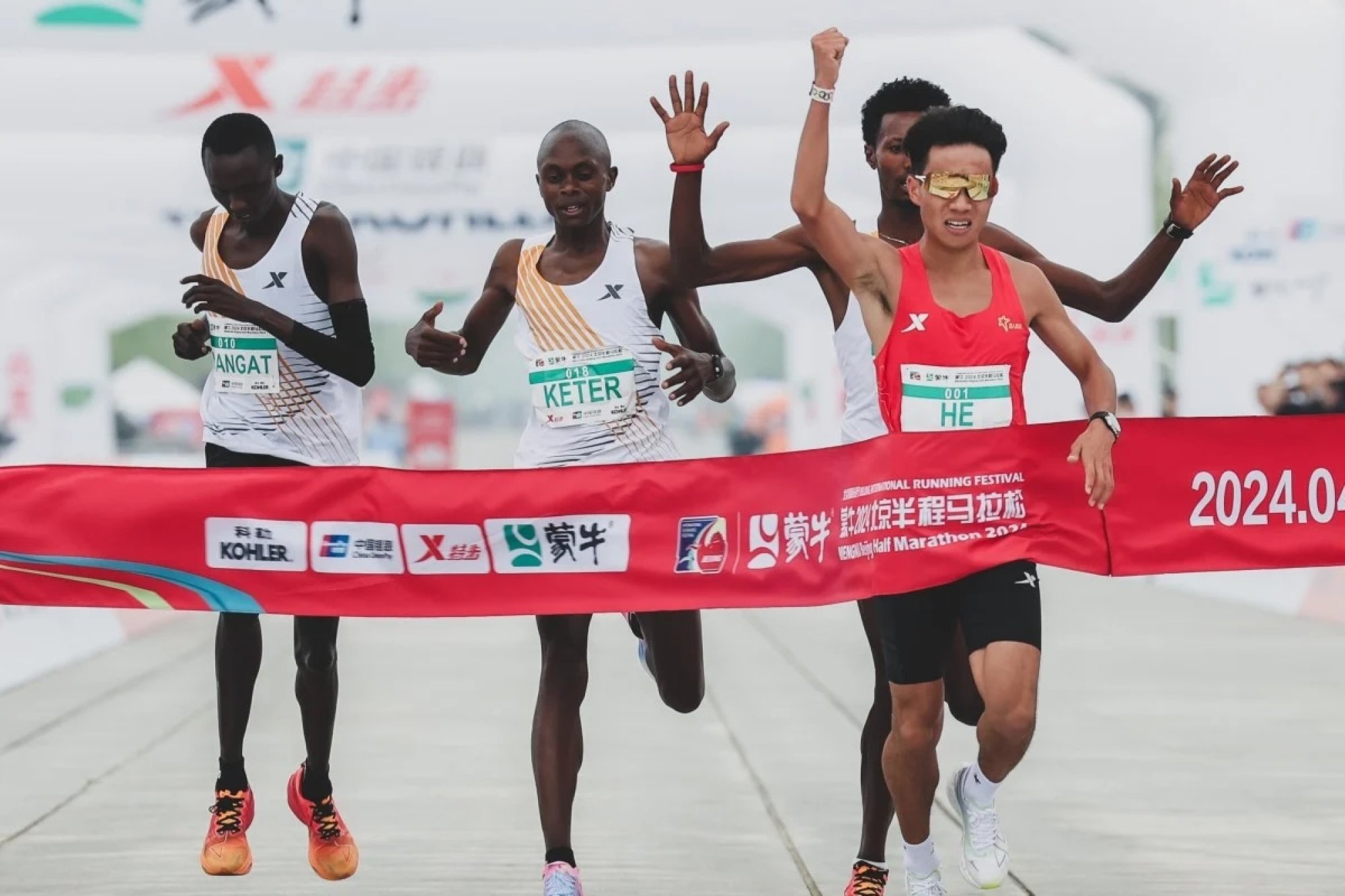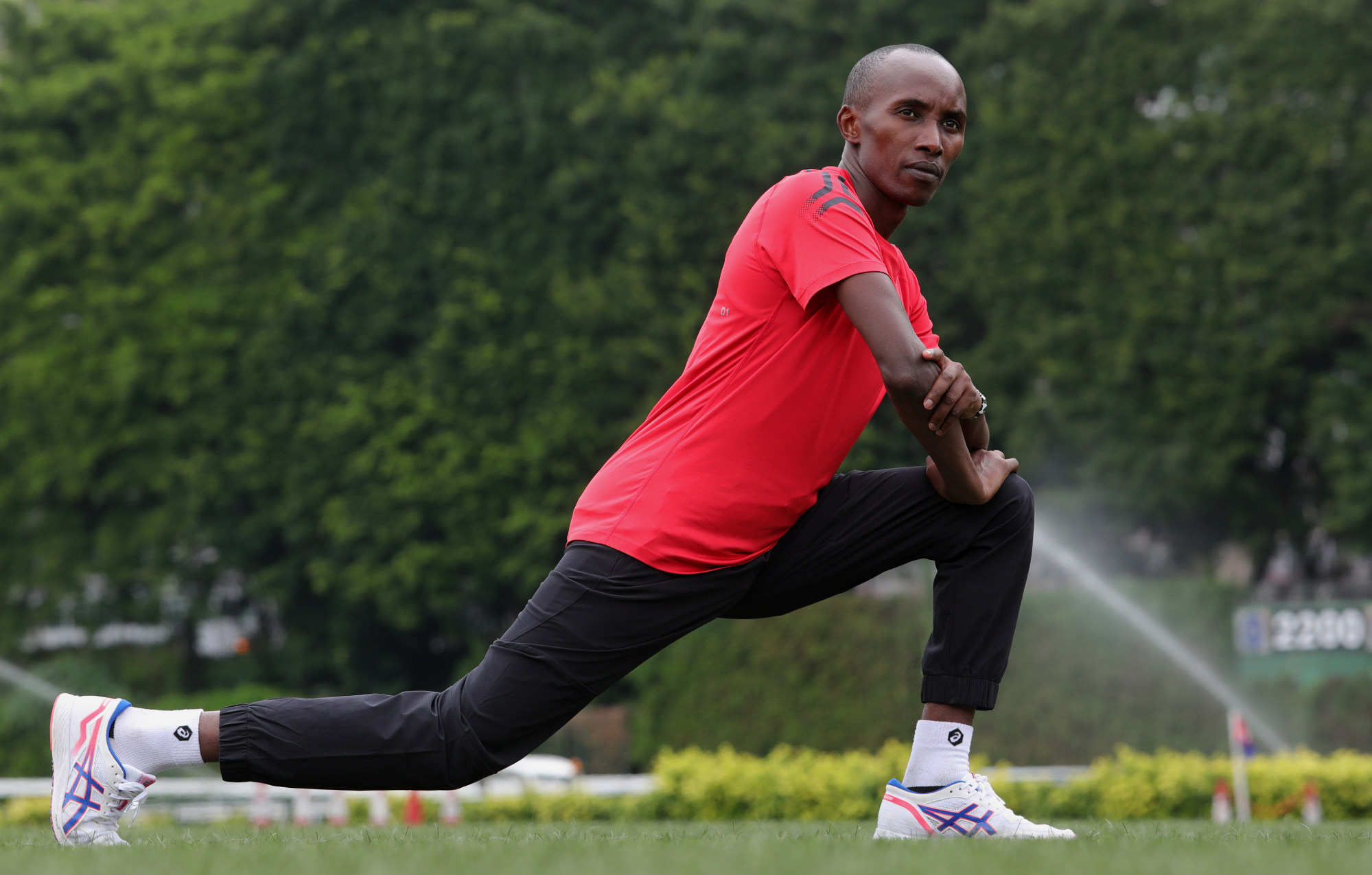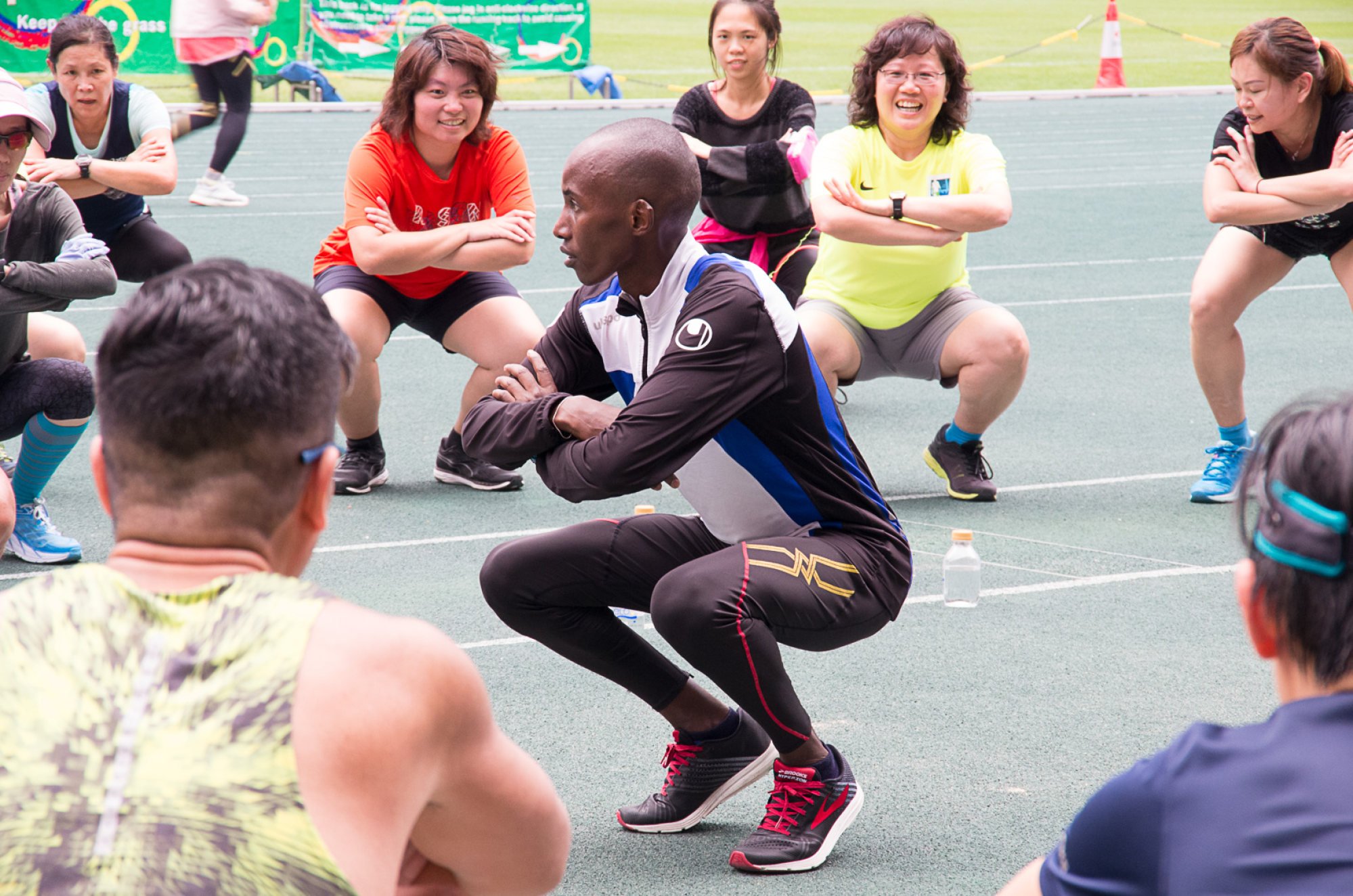
Kenyan runner Muteti understands compatriots’ Beijing Half Marathon dilemma, but says ‘race fixing cannot be tolerated’
- Lukas Wambua Muteti says race manipulation is nothing new, cites episode from 1999 when compatriot lost US$1 million
- Kenyan’s mum had begged him to return home after five years without income; he used first racing cheque to buy parents a cow
Kenyan distance runner Lukas Wambua Muteti understands how compatriots Willy Manangat and Robert Keter got caught up in the mess of the Beijing Half Marathon.
The pair, who had apparently been hired as pacers but were entered into the race as athletes, were stripped of their medals and any prize money for allowing China’s He Jie to win the race.
Officials finally acted last Friday, also punishing Ethiopia’s Dejene Hailu Bikila, after a week of questions and suspicion over the event on April 14.
Muteti said “race manipulation” was not uncommon, and cited an incident from more than 20 years ago as an example of how agreements between runners could even happen on the move.
The 39-year-old highlighted a race in Zurich in 1999, when Kenyan steeplechaser Bernard Barmasai was targeting a fifth straight Golden League victory, a feat worth a US$1 million bonus.

With Christopher Koskei controlling the race, Barmasai was seen to whisper in his compatriot’s ear, before securing the win. The sport’s IAAF governing body ultimately denied Barmasai the jackpot.
Muteti suggested the Kenyan runners in Beijing may have been offered a financial inducement, not tied to any official prize money, to allow He through.
“I understand why it can happen,” said Muteti, who has never been asked to manipulate a race. “Kenyans run to change our lives. Our life is only running. Chinese life is good, in Kenya we struggle to make money.
“Letting someone who has a comfortable life take the win shows how cruel you can be to yourself, so it was not good.”
Muteti, the 2014 Bangkok Marathon champion, knows the benefits that can come from the sport, and co-founded MIRARunners, an initiative that brings athletes from Kenya to train and compete in cities around Asia.
Increasingly, though, he finds races in the region are becoming “unfriendly” towards foreign competitors, a rise he said went back to around 2016.
Last year, he spent a month preparing for a marathon in one Asian country, only to be told four days before the race his entry had been cancelled.

In addition, Muteti is increasingly encountering races where only local runners are allowed to win, and said that made Kenyans “feel discriminated against”.
“I love Asian people, they have embraced running through us,” he said. “When a local challenges me in a race, it motivates them. But it is happening more that only locals are allowed to run. It is hard to make a living.”
Muteti’s prize for winning his first competitive race, as a 15-year-old, was a half-loaf of bread and a bottle of coke.
“I did not enjoy the race, but I was motivated to win because of the prizes,” he said. “I had all my peers celebrating, and lifting me up. I realised this could be my career.”
The head teacher at Muteti’s school would send him on 10-kilometre round trips on foot to run errands, stealthily building training into a day that began with an eight-kilometre run to school.
He was eventually mentored by Patrick Ivuti, the 2007 Chicago Marathon winner, who opened his home to Kenya’s most gifted runners, and presented Muteti with his first pair of running shoes in 2006.

Muteti moved full time to a training camp in 2007, but after five years without an income fielded a call from his mother telling him to come home to work on a farm, or for a foreign company, as his school contemporaries did.
He refused, then made his own luck when the wife of Patrick Makau, the former marathon world record holder, arranged a passport for Muteti after being impressed by his incessant training.
He finished third in his first overseas race, in India, and used the winnings to buy his parents a cow. Muteti ultimately built a home for his mum and dad, “before I had a house of my own”, and supported his three siblings through high school.
But he would discourage his own children from pursuing the sport professionally, “because running is like punishing yourself”.
Muteti was in Hong Kong this past weekend to take part in Saturday’s Fearless Dragon Charity Run, which promotes an inclusive society, and prominently features disabled runners.
“I have been an ambassador for the race since 2018,” Muteti said. “It is an initiative for Hong Kong people to support those with disabilities, to run with them, and, hopefully, motivate them.
“Everybody should have the chance to live a full life.”

